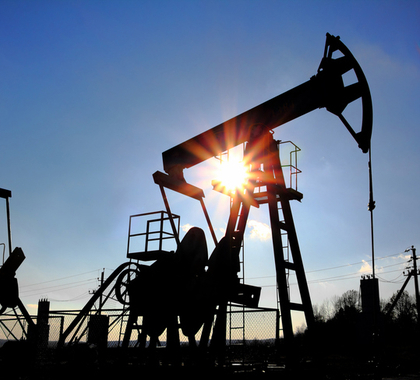A new study published in the peer-reviewed journal Energy Research & Social Science analyzed voter data from Colorado’s unsuccessful Proposition 112 ballot initiative in 2018 and found voters living in close proximity to an oil or natural gas drilling site were more likely to oppose the initiative than those who live far away from a drilling site.
If it had passed, Prop 112 would have effectively banned new oil and gas development, especially via the hydraulic fracturing (colloquially known as “fracking”) process, in Colorado by requiring new drilling sites to be at least 2,500 feet away from occupied buildings and other “vulnerable” areas.
Fortunately, voters closer in proximity to those drill sites knew just how important those sites are to the state’s economy, as well as how safe those sites are, and voted accordingly.
“Of the 2,522 jurisdictions we examine (2,515 precincts plus 7 counties),” the study authors note, “1,648 voted against Prop 112 while 875 precincts voted in favor. Generally speaking, precincts that opposed Prop 112 were far more likely to have at least some oil and gas activity within their boundaries. … Of the 875 precincts that supported Prop 112, just 3 percent had any active oil and gas wells during the period of 2000 to 2018.” However, “for each additional well per square mile within a given precinct, opposition to Prop 112 increases by 0.74 percent.”
The passing of Prop 112 would have caused more than 100,000 jobs lost and $1.1 billion less in state and local tax revenue through 2030, including a whopping $258 million revenue decline in the first year alone, the Common Sense Policy Roundtable estimated. Not surprisingly, the ballot initiative was opposed by editorial boards at The Denver Post, The Durango Herald, The Grand Junction Daily Sentinel, Aurora Sentinel, The Colorado Springs Gazette, Craig Daily Press, The Pueblo Chieftain, and The Fort Morgan Times.
A November 2019 study by the U.S. Chamber of Commerce’s Global Energy Institute concludes a fracking ban would eliminate 468,000 jobs throughout the state from 2021 to 2025, with a cumulative loss in GDP of $187 billion over that period. Household incomes in Colorado would decrease by $120 billion over that period, while state and local tax revenues would decrease by $14.9 billion.
A 2018 report from the Consumer Energy Alliance (CEA) highlights the importance of energy production in Colorado, specifically energy generated from fracking. The report reveals how lower natural gas prices in Colorado, due in large part to fracking, saved residents and businesses almost $12.4 billion in the decade from 2006 to 2016.
“The economic benefits of the oil and gas industry can be felt across the state—supporting jobs in 50 of Colorado’s 64 counties,” the CEA report notes. “In 2014, Colorado producers contributed almost $1.2 billion to the state’s coffers via property, income and severance taxes in addition to public land leases and royalties. This money goes to funding public safety, streets and highways, our state’s schools and other projects that benefit communities statewide.”
Moreover, the oil and natural gas industries supported about 232,000 jobs in Colorado in 2015, producing more than $23 billion in labor income and $31 billion in total economic impact, according to a 2017 American Petroleum Institute study prepared by PricewaterhouseCoopers.
Colorado is the sixth-largest producer of natural gas in the United States, and the seventh-largest producer of oil. Meanwhile, emissions are declining as energy production is reaching record levels. Energy is a crucial part of Colorado’s economy.
Proposition 112 was rejected handily by voters in 2018. Colorado policymakers should take that as a sign that residents do not want legislation that unnecessarily burdens the natural gas and oil industries, which are environmentally safe and vital to the Centennial State’s economy. As this study shows, those Coloradans who know the most about fracking, the ones who live near drilling sites and who live with the day-to-day reality of them are the most likely to support them and are not fearful of them or troubled by them. Legislators should keep that in mind the next time activists try to limit oil and gas development in the Centennial State.
The following documents provide more information about hydraulic fracturing and fossil fuels.
America’s Progress at Risk: An Economic Analysis of a Ban on Fracking and Federal Leasing for Natural Gas and Oil Development
https://www.api.org/~/media/Files/Oil-and-Natural-Gas/Hydraulic-Fracturing/2020/fracking-ban-study-americas-progress-at-risk.pdf
The study from the American Petroleum Institute (conducted by economic modeling firm OnLocation) warns that banning federal leasing and fracking on public and private lands, which some presidential candidates have proposed, would cost up to 7.5 million American jobs in 2022 alone, lead to a cumulative GDP loss of $7.1 trillion by 2030, slash household incomes by $5,400 annually, increase household energy costs by more than $600 per year and reduce farm incomes by 43 percent due to higher energy costs. If a ban is enacted, the U.S. would flip from being a net exporter of oil and petroleum products to importing more than 40 percent of supplies by 2030
What If…Hydraulic Fracturing Were Banned? (2020 Edition)
https://www.globalenergyinstitute.org/sites/default/files/2019-12/hf_ban_report_final.pdf
This study from the Global Energy Institute at the U.S. Chamber of Commerce says a ban on fracking in the United States would be catastrophic for our economy. Their analysis shows that if such a ban were imposed in 2021, by 2025 it would eliminate 19 million jobs and reduce U.S. Gross Domestic Product by $7.1 trillion. Tax revenue at the local, state, and federal levels would decline by nearly a combined $1.9 trillion. Natural gas prices would leap by 324 percent, causing household energy bills to more than quadruple. By 2025, motorists would pay twice as much at the pump for gasoline as oil prices spike to $130 per barrel, while less domestic energy production would also mean less energy security.
The Importance of Affordable and Abundant Oil and Natural Gas for Colorado
https://consumerenergyalliance.org/cms/wp-content/uploads/2018/10/CEA-CO-Report-101118.pdf
This report from the Consumer Energy Alliance examined how the shale revolution across Colorado has provided benefits to Centennial State residents by boosting disposable income and revitalizing communities, saving residential users $4.3 billion, and commercial and industrial users $8 billion.
Increasing the Oil and Gas Setback Requirement to 2,500-feet in Colorado: The Economic and Fiscal Impacts of 2018 Proposition 112
http://commonsensepolicyroundtable.org/wp-content/uploads/2018/09/CSPR_CO_Proposition_112_Report.pdf
This study from the Common Sense Policy Roundtable evaluates the economic and fiscal impacts of the proposed Ballot Proposition 112. It concludes it would lead to the loss of over 100,000 jobs and up to $1.1 billion in state and local tax revenue through 2030, with $258 million in revenue being lost in the first year alone. This revenue goes to pay for schools, road maintenance, public safety, and other municipal services.
The Value of U.S. Energy Innovation and Policies Supporting the Shale Revolution
https://www.whitehouse.gov/wp-content/uploads/2019/10/The-Value-of-U.S.-Energy-Innovation-and-Policies-Supporting-the-Shale-Revolution.pdf
This report from the White House Council of Economic Advisors estimates that increased oil and natural gas production due to the fracking revolution is saving American families a combined $203 billion annually, or around $2,500 per family. On top of this, the fracking revolution is benefitting the environment, lowering energy-related greenhouse gas emissions by 527 million metric tons between 2005 and 2017.
Natural Gas Savings to End-users: 2008-2018 A Technical Briefing Paper
https://onetrillionsaved.org/assets/files/092919_Kleinhenz__Associates_Natural_Gas_Savings_to_End_Users_2008-2018.pdf
This report prepared by Kleinhenz & Associates for the Ohio Oil and Gas Energy Education Program shows increased oil and natural gas production from hydraulic fracturing saves American families $203 billion annually on gasoline and electricity bills. This breaks down to $2,500 in savings per family per year.
Debunking Four Persistent Myths about Hydraulic Fracturing
https://heartland.org/publications-resources/publications/debunking-four-persistent-myths-about-hydraulic-fracturing
This Heartland Institute Policy Brief by Policy Analyst Timothy Benson and former Heartland communications intern Linnea Lueken outlines the basic elements of the fracking process and then refutes the four most widespread fracking myths, providing lawmakers and the public with the research and data they need to make informed decisions about hydraulic fracturing.
The Local Economic and Welfare Consequences of Hydraulic Fracturing
https://heartland.org/publications-resources/publications/the-local-economic-and-welfare-consequences-of-hydraulic-fracturing
This comprehensive study published by the National Bureau of Economic Research says fracking brings, on average, $1,300 to $1,900 in annual benefits to local households, including a 7 percent increase in average income, a 10 percent increase in employment, and a 6 percent increase in housing prices.
Local Fiscal Effects of a Drilling Downturn: Local Government Impacts of Decreased Oil and Gas Activity in Five U.S. Shale Regions
http://www.rff.org/files/document/file/RFF%20Rpt-SPF.pdf
This study from Resources for the Future finds 82 percent of communities in the five largest shale regions in the United States experienced a net fiscal benefit from hydraulic fracturing despite a large drop in oil and natural gas commodity prices starting in 2014.
Impacts of the Natural Gas and Oil Industry on the U.S. Economy in 2015
https://heartland.org/publications-resources/publications/impacts-of-the-natural-gas-and-oil-industry-on-the-us-economy-in-2015
This study, conducted by PricewaterhouseCoopers and commissioned by the American Petroleum Institute, shows that the natural gas and oil industry supported 10.3 million U.S. jobs in 2015. According to the Bureau of Labor Statistics, the average wage paid by the natural gas and oil industry, excluding retail station jobs, was $101,181 in 2016, which is nearly 90 percent more than the national average. The study also shows the natural gas and oil industry has had widespread impacts in each of the 50 states.
The U.S. Leads the World in Clean Air: The Case for Environmental Optimism
https://files.texaspolicy.com/uploads/2018/11/27165514/2018-11-RR-US-Leads-the-World-in-Clean-Air-ACEE-White.pdf
This paper from the Texas Public Policy Foundation examines how the United States achieved robust economic growth while dramatically reducing emissions of air pollutants. The paper states that these achievements should be celebrated as a public policy success story, but instead the prevailing narrative among political and environmental leaders is one of environmental decline that can only be reversed with a more stringent regulatory approach. Instead, the paper urges for the data to be considered and applied to the narrative.
Climate Change Reconsidered II: Fossil Fuels – Summary for Policymakers
https://heartland.org/publications-resources/publications/climate-change-reconsidered-ii-fossil-fuels—summary-for-policymakers
In this fifth volume of the Climate Change Reconsidered series, 117 scientists, economists, and other experts assess the costs and benefits of the use of fossil fuels by reviewing scientific and economic literature on organic chemistry, climate science, public health, economic history, human security, and theoretical studies based on integrated assessment models (IAMs) and cost-benefit analysis (CBA).
The Social Benefits of Fossil Fuels
https://heartland.org/publications-resources/publications/the-social-benefits-of-fossil-fuels
This Heartland Policy Brief by Joseph Bast and Peter Ferrara documents the many benefits from the historic and still ongoing use of fossil fuels. Fossil fuels are lifting billions of people out of poverty, reducing all the negative effects of poverty on human health, and vastly improving human well-being and safety by powering labor-saving and life-protecting technologies, such as air conditioning, modern medicine, and cars and trucks. They are dramatically increasing the quantity of food humans produce and improving the reliability of the food supply, directly benefiting human health. Further, fossil fuel emissions are possibly contributing to a “Greening of the Earth,” benefiting all the plants and wildlife on the planet.
Nothing in this Research & Commentary is intended to influence the passage of legislation, and it does not necessarily represent the views of The Heartland Institute. For further information on this subject, visit Environment & Climate News, The Heartland Institute’s website, and PolicyBot, Heartland’s free online research database.
The Heartland Institute can send an expert to your state to testify or brief your caucus; host an event in your state; or send you further information on a topic. Please don’t hesitate to contact us if we can be of assistance! If you have any questions or comments, contact Heartland’s Government Relations department, at [email protected] or 312/377-4000.




